| Zeitschrift Umělec 2012/1 >> Laughlines from the Shoahshowbusiness. Joshua Cohen’s Witz | Übersicht aller Ausgaben | ||||||||||||
|
|||||||||||||
Laughlines from the Shoahshowbusiness. Joshua Cohen’s WitzZeitschrift Umělec 2012/130.01.2013 16:45 Louis Armand | shoashowbusiness | en cs |
|||||||||||||
|
The story of the last Jew on Earth. A book that does not use the word Jew even once. A publication whose translation threatens to unleash a pogrom. The story of an over-hyped religion and a hypochondriac father. A story that is humor, witz and joke. An eschatological novel-golem about incomplete and interrupted survival.
A synopsis of Joshua Cohen’s 817-page novel, Witz,* might read something like this:
Or, something like what we find in Stephen Burn’s New York Times review:
Or, as in the book’s Library of Congress cataloguing-in-publication data:
Which is not, incidentally, any part of the title of the book as it is published on the cover or title-page. This supplementary piece of data, like the preceding synopses, immediately draws our attention to a problem, since it is precisely this logic, this economy, of summarization – which on the one hands seeks to reduce, to substitute, and on the other to attach a type of poignant embellishment – that Cohen’s text both in fact resists and sets out to openly undermine, not only by means of a certain topicality of its “subject” (so-called) but by its (the text’s) irreducibility. This would in itself already be a cliché of sorts if not for the fact that Cohen stages this question of irreducibility in terms of a related question of genre: what we are actually given on the cover and title-page of the book, in an extension of an act of naming almost everywhere detectable within it, is this – Witz: A Novel. This ultimate act of summarization (as if the words “a novel” are to be taken to stand for an entire institution of genre that somehow accounts for the text, or at least the “form” of the text, in advance) serves as a provocation. As provocative as the fact that, on not one of the 817 pages of this so-called novel – “the story of the last Jew on earth” – does the word “Jew” appear. Is it Cohen’s intention that we confront these two circumstances, equally founded upon an act of reduction, in terms of a “problem” of genre: the genre of the novel and the genre of the Jew?; the one named, the other unnamed but everywhere evoked, characterised, taxonomised and genealogised? But we need to proceed cautiously here, since this signifiance (from French: meaning production regime) of the generic threatens to get away from us as soon as we pose the question in these terms – which is to say, whenever we omit to examine not what is being named, but the institution (the genre) of naming as such, of a certain indexicality and of the paradigm of representation. Cohen himself gives us two occasions at the beginning of the book to consider this, both of them in the form of epigraphs, of an anterior supplemental text in advance of the so-called text proper (a beginning in advance of “the beginning,” causing it therefore to commence en retard: “In the beginning,” Cohen writes, “they are late” [13]). The first of the two epigraphs – which, compounding its already paradoxical status, names what it insists is not named within the book – states:
The second takes the form of a definition:
From the very outset, therefore, and before the outset, the text adverts to its own supplemental character – more-so since the “Witz/-witz” not only refers to a noun of Germanic origin and the patronymic suffix belonging to certain Jewish names, it is also a proper noun constituting the title of this book you are about to read. It is as if the author were determined to call our attention to precisely this supplemental effect of the name itself; by an implied filiation (itself an effect of naming) which is simultaneously a going astray (orthographically in the permutations of “-witz” and as the supplemental form of the name of the supplement): an effect encountered throughout Witz in its multiple (and at times seemingly interminable) genealogies, its everywhere accretive idiolects, its proliferation of homonyms, synonyms, metonymy and paraphrasis, and the omnipresence of a certain logic of displacement, deferral, deviation, détournement which in turn may be said to constitute its form. Take the account of Benjamin Israelien’s birth, which precedes the following extended treatment (in the mode of a series of pseudo-Talmudic conjugations and declensions, whose augmentation assumes comical proportions) of the genealogical concept:
The passage continues – by way of an incestuous anecdote about this “historical” namesake’s begetting of Adam, father of Seth and Benjamin Israelien’s “direct’ ancestor, taking in the combined lineage of a certain Matthew, Mark, Luke and John – to the revelation of Israel Israelien (Benjamin’s father)’s non-Jewishness: converted through the love of his wife “as much as through his love of her people and the incredible taxbreaks that came with it all” (87). Son of Israel, Benjamin, Ben Israel, or ben Israel – born already circumcised “upon the Sabbath at fullsize, at full intelligence, too… mature already, with glasses and hairy… blond… His own two eyes, as blue as a recessive flame, from a Cossack, even a Nazified Aryan who’d perhaps raped a grandmother of His…” (87) – presents, from his first appearance, something of a mock messiah figure, whose nativity is given thus:
Coming as the thirteenth child in a family of twelve daughters, this Messiah’s “in no way premature” arrival appears to us both pregnant with allegory and born of a comical schadenfreude. For indeed it ushers in a “secular turn”: “the very last Sabbath of all time” (21), as it were. Son of an Israel that is Jewish only by conversion (but of an “affiliated” mother, Hanna, and so authentically Jewish by matrilineal descent), Benjamin is not the miraculous saviour of his people but the unwitting witness to their final apotheosis: “their most imperfected survivor – most imperfected as survivor” (759: emphasis added). Indeed, the antecedence of his birth by genealogy has a telling counterpart in the gestative cancers of his hypochondriac father’s imagination:
There is a sense that all this play on names, on genealogies, allegory, and the inevitably portentous subject of the Jewish holocaust (directly and by way of the metaphor of a Jewish “cancer”), is exactly what the title of the book “disclaims” itself as being in advance – a monumentally tendentious joke. But by establishing a fictional parallel between a scenario of the passing of the last survivor of the Shoah, and a genre of Jewish “messiah” jokes (in which it is the Messiah “Himself’ who is the very embodiment of the joke, the Witz, or -witz, the ben Israel3; which joke is, so to say, at the expense of Israel, of the Jewish nation, both literal and figural), Cohen demands a certain reflection on the part of his readers as to what in fact such a “joke” might entail (is it simply a metaphor?) and what, in a manner of speaking, it might represent. In his 1905 study Der Witz und seine Bezeihung zum Unbewussten [Jokes and their Relation to the Unconscious], Freud describes jokes in general as a type of symptomatology whose psychogenesis often lies in the circuitous rerouting of aggression. In particular, Freud discusses a species of tendentious joke “created by Jews and directed against Jewish characteristics.” Such jokes, he points out, need to be distinguished from “jokes made about Jews by foreigners [which] are for the most part brutal comic stories in which a joke is made unnecessary by the fact that Jews are regarded by foreigners as comic figures.”4 In the eyes of “foreigners,” the figure of the “Jew” is thus perceived as bound, even at the level of the joke, to a type of superfluity; as effectively standing in place of the joke. Each of the four classes of tendentious joke identified by Freud – the obscene, the aggressive, the cynical and the sceptical – espouses a contrary motive, such that it is the joke that stands in place of the Jew. The joke is always a type of meta-joke, whose impetus is one of constant substitution and displacement: the causality of the “joke” is itself a détournement of the causal. It operates, in other words, like an unconscious. A frequent example given by Freud concerns the typical Yiddish figure of the Schnorrer [beggar] and the charitable householder or Baron. For instance:
The same joke finds its way into an epilogue to the reminiscences of Cohen’s 108-year-old “last living survivor of the Holocaust” (“the Shoahshowbusiness”), “Joseph ben you don’t know me from Adam” (805-6), who towards the end of Witz punctuates an otherwise apocalyptic monologue with the punchlines to old half-forgotten jokes: “When it comes to my health the man’s saying nothing’s too expensive” (813: emphasis added). The joke-work operates by displacement, transgression, excess; its form, like that of Cohen’s text, like writing itself, is an “orientation,” as Derrida says, “which is a disorientation.”6 The form of the joke-work stands in contrast, therefore, to the form of history which it nevertheless, at the same time, “in one divided but coherent movement,” articulates as a “straining towards the reconstruction of presence.”7 The eschatology of this movement, however, performs a rupture in the “classic conceptuality” of revealed ends. We might go so far as to say that it is in precisely the form of the joke-work that Marx’s thesis about the proneness of history to repetition, both tragic and farcical (“history being written and rewritten” [88]), most readily obtains. The joke-work may be said, in fact, to be a type of metonymic counterpart of the end of history itself; an end whose excess can never, in any case, be produced as history (which is also to say, even as the simulacrum of history, of the continuation of history after the fact, as it were, evoked by Cohen in such pseudo-Rabbinical figures – the annalists of Witz’s post-Jewish-apocalypse – as “Rabbi Bill, Reb Bob of Normal, IL, Rabbi Lao Zhing-Zhao, Rav Martinez, Rav Nuncio” [88]). The question remains, and it is the question par excellence of Cohen’s “novel,” as to what in fact is at stake here? In the end, what’s the limit of excess? What, in the language of Freud’s joke, is too expensive? What, to the tragic view of history, is too high a cost for the health of the “Jew” whose active extermination ran to millions? For, coupled here to the fate of the last witness to the Nazi “final solution to the Jewish question,” die Endlösung, the joke’s impertinence assumes the form of an open-ended indictment – which is also, therefore, a ridicule on a (rhetorically) cosmic scale. As Cohen’s “last survivor of the Holocaust” puts it:
How else than via the rupturous excess of the joke to approach the experience of the “Auschwitz Explicit Itinerarium”? An experience which threatens – in the absence of testimony, in the absence of the proof of itself – to forever be expunged; which cannot – according to a negatively inflected concept – survive itself, that which represents nothing if not the very condition of survival; which, in the end, is marked simply by the fact that there will be no survivors. Or rather, what survives, what goes on, is Cohen’s “most imperfected”: the failure of a survival which itself cannot be survived, which is the sole, ultimate testimony of what survives. In the end, as Celan says, Who bears witness for the witness? And yet, if history proceeds from the logic of an Auschwitz, of an Enlightenment “progress in its deathmarch” (24), the eschatology of the joke represents, in its abysmal recycling of punchlines, the repudiation of the always in-advance, the always en-retard, last laugh. Again the barbed humour of Cohen’s 108-year-old survivalist:
“Punchlines,” the title of the last chapter of Cohen’s Witz, begins: “And this is where it ends” (784). The anticipated “end,” meanwhile, opens out like the promise of utopia: “A new world./ One day, one night soon, in our time – we wait” (759). The end, when it comes, is not that “Day of Judgement” (816), that Revelation of the Testaments (“the heart of the issue toward the soul of the mattering womb” [812]), but a note falling flat; an echo, and anticipation, of that interminable fall which is also the turn of writing, and which points towards something unknowable, unrepresentable, the “next to nothing no more discussions no more discursions excursions exegesis eisegese didn’t one Ecclesiastic or another once gloss there’s nothing new under the sun the moon the twin Pole-poles within the fences the walls the barbed boundaryround laughlines…” (812).8 The final punchline is an incomplete sentence. How could it be otherwise? The light at the end, the Grace of God, is a falling off into the blankness of the page, in which the incomplete inscription awaits itself: “I don’t even know her these punchlines these payoffandons these zingers and dingringers of bells the bleeding heart of the mouth that’s what I have that’s what I recall they come back to me now as I’m dying this whispering hiss I’m this dying moment forsaking me for a laugh these one hundred and eight of them lines but who’s counting” (812). And the epilogue, postscript, a narrow column of text running down the right-hand-side of the final five pages of the book – a type of remainder, a survival – “you call this living this you call living what do you know from living” (816). What after all, Cohen seems to ask, is survival but a “living” by one’s wits – the paradoxical, accidental evasion of history, of reason, of the otherwise-determined course of events, by way of a caprice of language – and which, at a certain point, turns into a joke that goes on longer than it’s supposed to? (But what kills a joke quicker than its explication?) Perhaps we expect the author to adopt some sort of moral standpoint, to construct a vista and point-of-view from which to cast a critical appraising eye backwards upon History, with its crimes and atrocities full-frontal or in three-quarter profile, exposed in all the verity of a graven image, like a Hollywood celebrity portrait of the “Shoahshowbusiness.” Instead the joke comes full circle. In this final afterlife of the book, the survivor Joseph “ben you don’t know me from Adam” Cohen comes face to face with his God and maker, his namesake, his “father” in a manner of speaking, the Author, Joshua Cohen:
3 In Witz the figure of the “Jew” is always already a type of pun – the pun being an internalisation of a certain rudimentary otherness which is turned outwards, quill-like, in the face of any effort to normalise its signifying excess; at the same time, this “turn” augments a supplementary gesture which effectively puts the pun beyond the reach of normalisation, situating it at or as normalisation’s limit.
4 Sigmund Freud, Jokes and their Relation to the Unconscious, vol. 7 of the Standard Edition of the Complete Psychological Works (London: Vintage / The Hogarth Press, 2001 [1960]) 111—emphasis added.
6 Jacques Derrida, Of Grammatology, trans. Gayatri Spivak (Baltimore: Johns Hopkins University Press, 1974), 216.
8 These inflections on survival serve to remind, also, of the conjunction of terror, the holocaust, the unpresentable, to the sublime, to a type of transcendental signified in opposition to the reification of terror as humanism, of the collective narcissism of so-called individual experience (the personal god, and such like). Cohen’s “most imperfected” hints at an important distinction, made by Klima and others, that the very nature of the Shoa is such that, in the final instance, survival precludes witnessing. The testimony of survival always thus incorporates this paradox. Just as, in the very texture of Cohen’s text, language itself cannot be reduced or reified: its testimony is to precisely this unpresentability upon which the paradox hinges. The violence of this paradox is not something that can simply be stripped of its apparent “rhetorical” clothing, as if rhetoric were mere ideological embellishment or distortion of a communicable truth: the trauma of the paradox is that the figure of the witness is bound to this missed encounter, whose form, like that of the joke, is also that of a language which resists and for whom the totalising movement of a reduction that bears its own end within it as signifier of the sublime or transcendental signified is tantamount to a “violence” that threatens to reign to such a degree that it is no longer able even to appear and be named. Cf. Jacques Derrida, “Violence and Metaphysics,” Writing and Difference, trans. Alan Bass (London: Routledge & Keagan Paul, 1978), 138.
30.01.2013 16:45
Empfohlene Artikel
|
|||||||||||||
|
04.02.2020 10:17
Letošní 50. ročník Art Basel přilákal celkem 93 000 návštěvníků a sběratelů z 80 zemí světa. 290 prémiových galerií představilo umělecká díla od počátku 20. století až po současnost. Hlavní sektor přehlídky, tradičně v prvním patře výstavního prostoru, představil 232 předních galerií z celého světa nabízející umění nejvyšší kvality. Veletrh ukázal vzestupný trend prodeje prostřednictvím galerií jak soukromým sbírkám, tak i institucím. Kromě hlavního veletrhu stály za návštěvu i ty přidružené: Volta, Liste a Photo Basel, k tomu doprovodné programy a výstavy v místních institucích, které kvalitou daleko přesahují hranice města tj. Kunsthalle Basel, Kunstmuseum, Tinguely muzeum nebo Fondation Beyeler.
|







![[b]Laughlines from the Shoahshowbusiness. Joshua Cohen’s [i]Witz[/i][/b]](http://88.208.121.86/upload/articles/51094ecc41eb0.detailThumb.png)
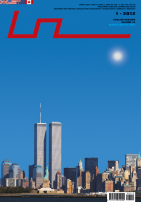











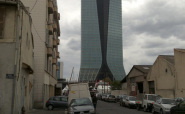
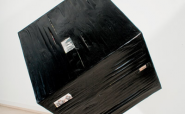
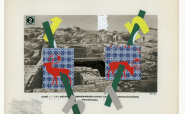

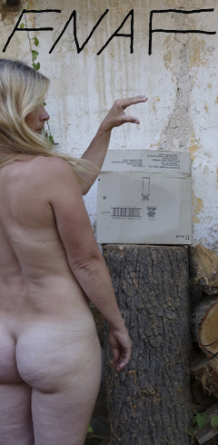











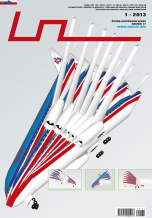
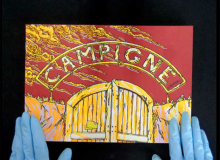
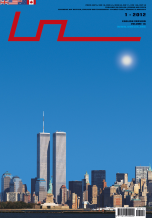
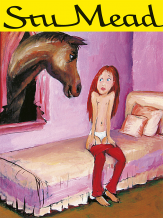


 Potsdamer Str. 161 | Neu Divus in Zwitschermaschine, galerie und buchhandlug in Berlin! | Mit U2 nach Bülowstraße
Potsdamer Str. 161 | Neu Divus in Zwitschermaschine, galerie und buchhandlug in Berlin! | Mit U2 nach Bülowstraße
Kommentar
Der Artikel ist bisher nicht kommentiert wordenNeuen Kommentar einfügen